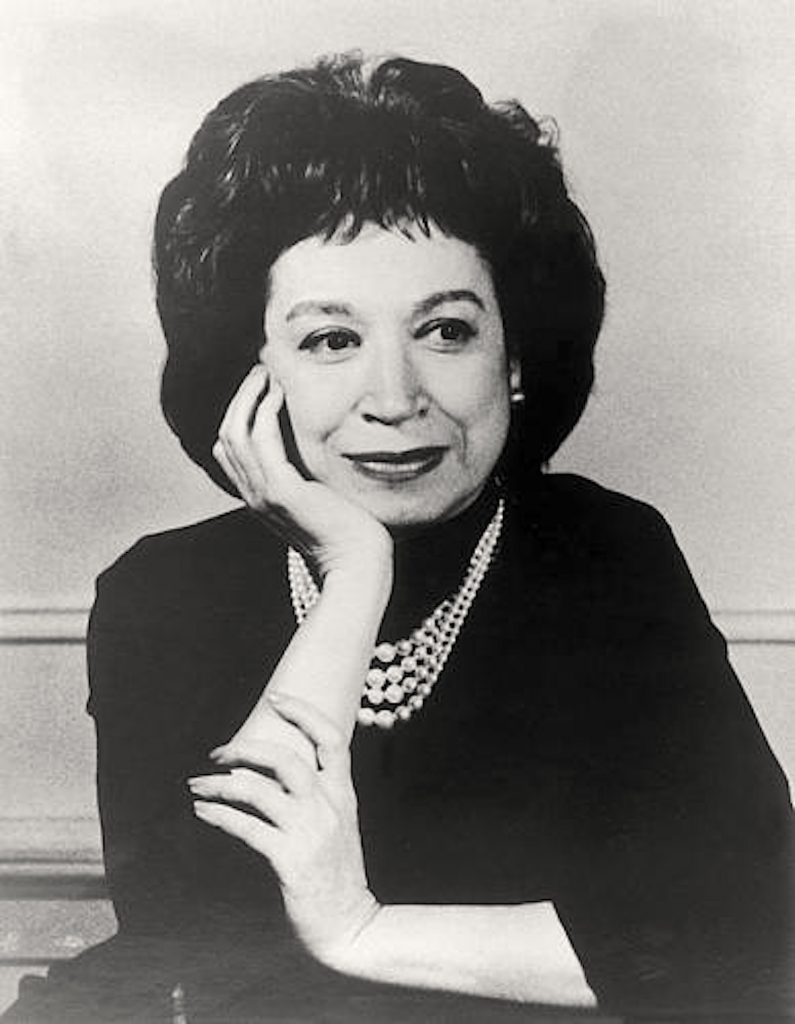One mark of a great theater piece is that decades, generations, even centuries after its inception it can still grab us by the shoulders and shake us.
The dozen or so plays that Alice Childress wrote between 1949 and 1987, which have remained virtually unknown to the broader public until recently, fix a startlingly contemporary gaze at race, class, theater, and sexual politics. Yet theater-makers have only begun to reexamine these works — not a single one of which appeared on Broadway during the author’s lifetime.
The Black playwright and novelist, who lived in New York for most of her life and died in 1994, wrote some of the most searingly honest and wittily cogent plays and novels of the 20th century. (Her novel A Hero Ain’t Nothin’ but a Sandwich was made into a successful film in 1978, starring Cicely Tyson and Paul Winfield and featuring Alice’s own screenplay.)
In 2021, Trouble in Mind finally received its Broadway premiere, 66 years after Alice’s steadfast refusal to “soften” the ending prevented it from advancing beyond its highly accomplished off-Broadway production.
This tardy but auspicious modern premiere was nominated for four 2022 Tony Awards and marked a sort of triumphant comeback for the late author. It has also heightened interest in Alice Childress’ works nationwide. The New York Times called Trouble in Mind “a tragedy that deserves to be a classic … a peculiarly American tale of lost opportunity.”
In August, Kansas City audiences will be able to experience this classic firsthand, as Kansas City Actors Theatre brings its new production of Trouble in Mind to the H&R Block City Stage.
“Alice Childress is a playwright whose works absolutely belong in the KCAT canon,” said Teisha Bankston, who is one of the company’s artistic directors and will co-direct this production. “Trouble in Mind is an important work, and it represents everything that KCAT’s brand of theater is: We do classic plays, and this is very much a classic play.”
Trouble in Mind, which derives its title from a blues song, is a play set in the 1950s about a group of theater artists trying to rehearse a naïve if well-intentioned “anti-lynching” play set during Reconstruction.
The author, producers, and director of Chaos in Belleville(the play-within-the-play) are all white, while the cast is a mixture of white and Black professionals. Wiletta Mayer is a veteran Black actor who has played her share of stereotypical characters over the years, even in the relatively “enlightened” atmosphere of New York theater, and she does not look forward to another one.
Her younger Black colleague, Millie Davis, recounts of one of her recent roles: “All I did was shout ‘Lord, have mercy!’ for almost two hours every night.” The white director, Al, believes in the “truthfulness” of this play about a young Black man who is murdered for the “crime” of voting.
But truthful for whom? As preparations for Chaos in Belleville unfold, it becomes clear that the Black actors are being called upon to play mildly cartoonish characters in a narrative that the actors quickly begin to see is both exaggerated and unrealistic.
Most glaringly, Wiletta points out that her character, by sending her son out on an escape attempt that will surely end in his death, becomes the villain, while the white characters who purportedly attempt (unsuccessfully) to save him become the heroes.

It’s not just the language that is the problem, it is the very substance of the play. “I don’t see why the boy couldn’t get away,” Wiletta says. “It’s the killin’ that’s … something’s wrong.” She gathers the support of Sheldon Forrester, an older Black actor who has learned to keep his head down but whose climactic Act II monologue forms the emotional climax of Trouble in Mind — when it becomes clear that he is the only person at this rehearsal who has actually witnessed a lynching.
Trouble in Mind is a remarkable drama that reflects on past experiences in ways that make us realize, with a jolt, that we are reliving the same conflicts over and over today.
“A lot of the things that we are battling now are reflected in this play,” Teisha said. “There is a strain that goes from today back to 1955 and then back to the Reconstruction.”
One of the issues broiling in theater today, for example, is Black theater-makers’ “ownership” of their own narratives. Indeed, if there is a solution to the immediate conflicts raised during rehearsals of Chaos in Belleville, they would perhaps best be addressed by the (offstage) white author — whose precious “oeuvre” is presumably not to be touched.
Alice today stands as one of the most compelling voices in American theater, though she was not always seen that way. Producers thought Trouble in Mind needed a tidier conclusion than she was willing to provide, and as a result it was Lorraine Hansberry’s A Raisin in the Sun, rather than Alice’s work, that in 1959 became the first play by a Black woman to make it to a Broadway stage.
Alice’s tenacity is one of the reasons that Actors Theatre is proud to provide space for her play. “It’s a sense of paying homage to a play and a playwright who pushed the envelope back in 1955,” Teisha said. “The entire board and artistic committee wanted to make sure that this is a play that Kansas City’s theater community knows.”
Directed by Teisha and Darren Sextro, the production features Lynn King as Wiletta, Chioma Anyanwu as Millie, Brad Shaw as Sheldon, Robert Coppage III as John, John Rensenhouse as Al, Emmy Panzica-Piontek as Judy, Logan Black as Bill, Scott Cordes as Henry, and Arthur Phog Clifford as Eddie.
“We crafted the absolute perfect team for this,” Teisha said. “And on a personal level, I’m thrilled to be a part of it, because as a person of color in theater — and with all of the privileges that I have now, and some of the things that we are still fighting against today — to honor this time period in this play, this capsule of honestly, is a gift. … It’s high time that people have Alice Childress’ name in their minds and are giving her the respect she has earned.”
—By Paul Horsley
Trouble in mind runs from August 7th through the 25th. For tickets go to kcactors.org. To reach Paul Horsley, performing arts editor, send an email to paul@kcindependent.com or find him on Facebook (paul.horsley.501) or Twitter/Instagram (@phorsleycritic).


